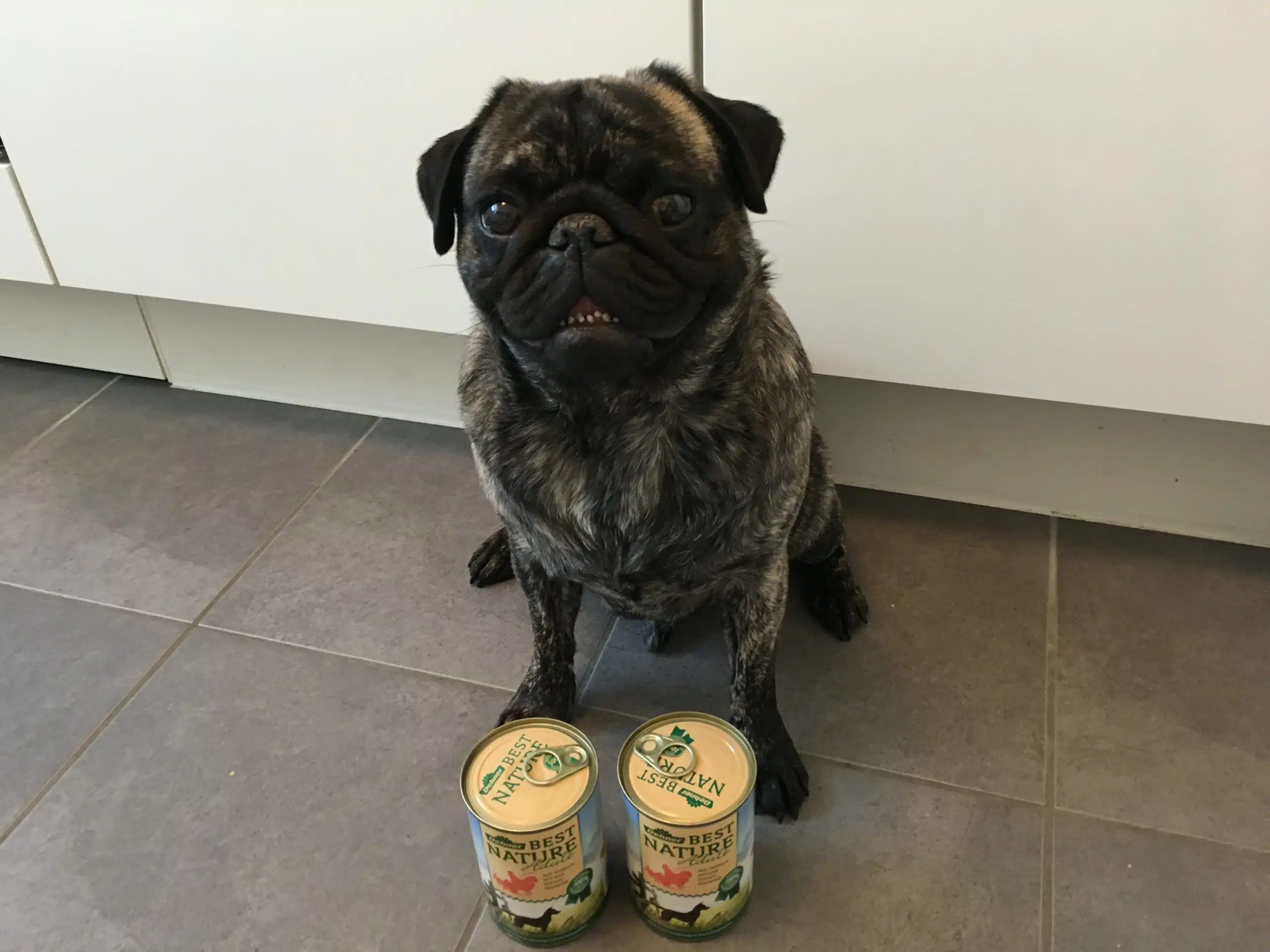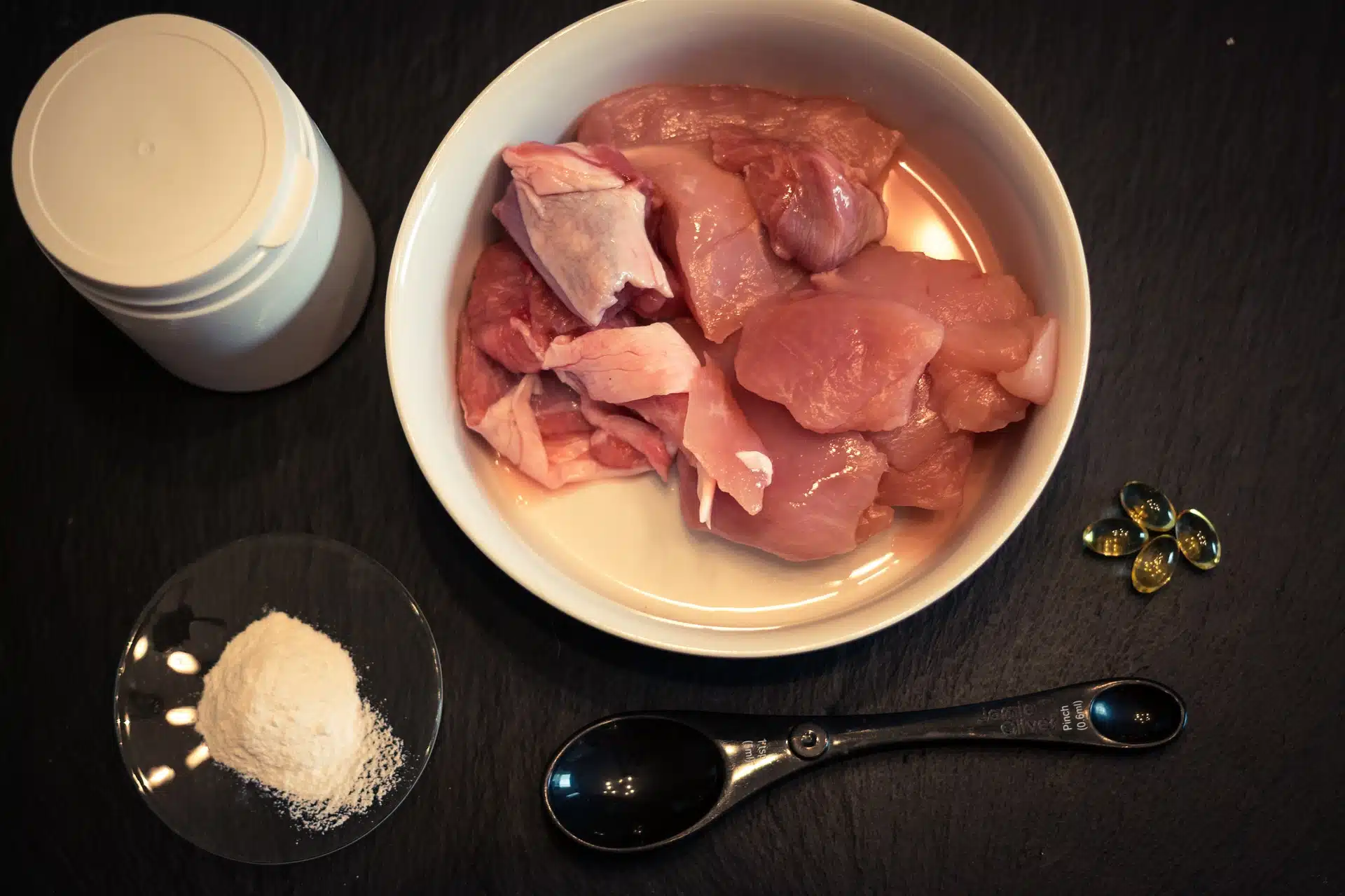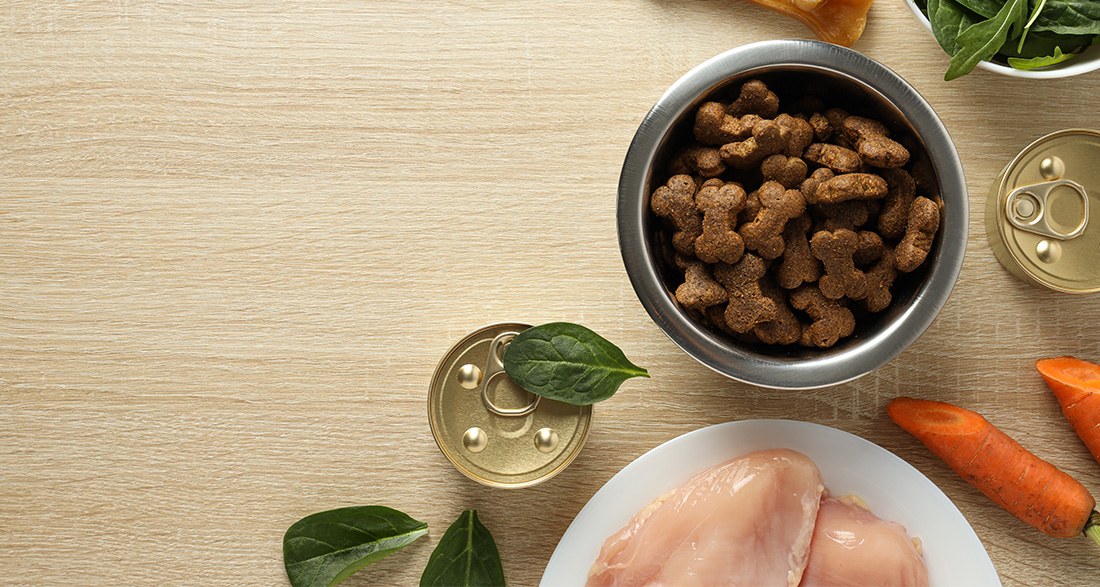Are you interested in organic dog food? After extensive research and testing of many brands in the organic food sector, I have written a comprehensive guide for you. I’ll show you the best varieties and what you should definitely pay attention to with organic.
Our Top Picks
[table id=16 cache_table_output=false /]
How we test 🐶
We looked at all organic products on the market. We not only looked at the ingredients but also at their proportions. The second aspect was the manufacturing process. Even though the products are organic, valuable nutrients can be lost during the manufacturing process.
Who is this test for?
This test is for dog owners who do not want to feed their pets with wet or dry food containing conventional ingredients.
In conventional dog food production, especially meat contains traces of growth hormones, antibiotics, and much more. In addition, farmers generally use genetic engineering for vegetables, fruits, and other ingredients. None of this has a place in the diet of our beloved friends.
Furthermore, the alternative of organic food has an ethical background aside from health-related reasons:
Because dog lovers are also animal lovers. It is difficult to reconcile this with our conscience when we use conventional dog food for our pets’ diet. Because the meat in the food comes from factory farming – which often means animal cruelty.
How we selected
Before we started our test, we consulted experts and various veterinarians regarding organic dog food.
They advised us on important ingredients and gave us tips on what to base our dog food test on.
What is Organic Dog Food?

Organic dog food, or also species-appropriate dog food, contains only natural raw materials. This includes only meat, vegetables, fruits, or grains from organic farming.
What is Organic Farming?
The farm animals are not unnecessarily fed with growth hormones or antibiotics. The farmer is only allowed to use antibiotics if the prescribed conditions are met. They must not use them as a preventive measure.
Plant substances must also be free from genetic engineering. Organic farming largely avoids synthetic pesticides and mineral fertilizers.
Organic foods may not contain flavor enhancers, artificial flavors, colors, or preservatives.
The manufacturer cannot simply label their dog food with an organic seal. This seal is protected and subject to the guidelines of the U.S. organic regulation.
Differences between Organic and Conventional Dog Food
Organic dog food is free from chemical or synthetic additives. Thus, your dog only consumes natural vitamins, minerals. The ingredients in the dog food are free from chemicals and pesticides. Thus, we do a lot for the health of our beloved pets.
We also support a more animal-friendly keeping of farm animals. Compared to factory farming, the animals are treated more kindly and can lead a more balanced life.
In comparison to conventional dog food, the meat content in organic dog food is usually higher. Meat is the most important source of protein for your dog.
Especially if your dog has an allergy, organic dog food is recommended. Because in this type of food, the manufacturer avoids artificial additives, which are often triggers for allergies or intolerances.
The use of natural ingredients also allows your dog to experience a natural taste. However, some dogs may have difficulty adjusting to the new taste when switching to organic dog food.
Because conventionally produced foods usually contain synthetic flavor enhancers. Here, you can initially mix both types of food and gradually reduce the proportion of conventional food over time.
Organic food does not always mean high quality food or meat. Because the manufacturer may add inferior slaughterhouse waste from organic animals to the food.
Advantages of Organic Dog Food at a Glance

- Farm animals are kept more humanely than in factory farming.
- They are not administered growth hormones and preventive antibiotics.
- The food itself does not contain artificial flavor enhancers, preservatives, flavors, emulsifiers, or colorants.
- Avoiding artificial flavorings does not lead to addiction in your dog.
- No genetic engineering.
- Natural.
- Vegetables or grains in the food do not contain pesticides -> ecological cultivation.
- Supports nature and climate protection.
What Types of Organic Dog Food are Available?
Organic dog food is available in wet and dry forms.
It is available as complete food and supplementary food. Complete food contains all the vitamins, minerals, and nutrients your dog needs for its daily diet.
Supplementary food, on the other hand, expands your dog’s menu. You can use it, for example, when raw feeding. You should never feed your dog exclusively with supplementary food, as the nutrients contained in it are not sufficient for a balanced daily diet.
There are also organic treats and snacks available now.
When manufacturing dry dog food, you should pay attention to the following: With extruded or cold-pressed food, most nutrients are lost. In this case, it is advisable to opt for simple air drying or gentle baking.
Last but not least: Even if the food has the organic seal, you should read the declaration carefully! For example, check the proportion of inferior slaughterhouse waste.
Connection between BARF and Organic

There are now many alternatives for our BARF fans as well. This feeding method is highly recommended for your dog if it has allergies or intolerances. Here you can then decide for yourself which foods should be in the diet.
You can prepare the individual animal and plant-based organic ingredients at home or buy organic ready-made BARF. This is an ideal alternative if you lack the time to prepare the food yourself but still want to feed your favorite raw and organic.
For more information on BARFing itself, you can visit our page 15 Tips for: BARFing for Dogs.
What should I consider when buying?
When deciding which organic food is best, you should primarily ensure that your dog will ultimately eat it. This means that your dog’s individual needs such as allergies, taste preferences are ultimately decisive.
Here, the rule of thumb also applies: Read the label thoroughly!
Decision criteria step by step:
- Do you need complete food, supplementary food?
- Are there any ingredients in the food that your dog cannot tolerate? Some dogs, for example, have an allergy to grains. Here you can buy Sensitive organic food as an alternative.
- Attention! Some organic dog foods contain sugar. We generally advise against such organic foods because high-quality organic food does not need added sugar.
- Which types of meat does your dog like? Beef, goose, chicken, or duck & Co.
- Is the food suitable for your dog’s age? Puppy: Up to 1 year
Adult: Up to 6 – 8 years (depending on the breed)
Senior: From 6 – 8 years (depending on the breed)
We recommend changing the type or brand of food from time to time. Because especially with organic food, nutrient values of different batches can differ.
Why?
Natural components cannot always have exactly the same nutrient values. By regularly changing, you can largely compensate for under- or over-supply.


